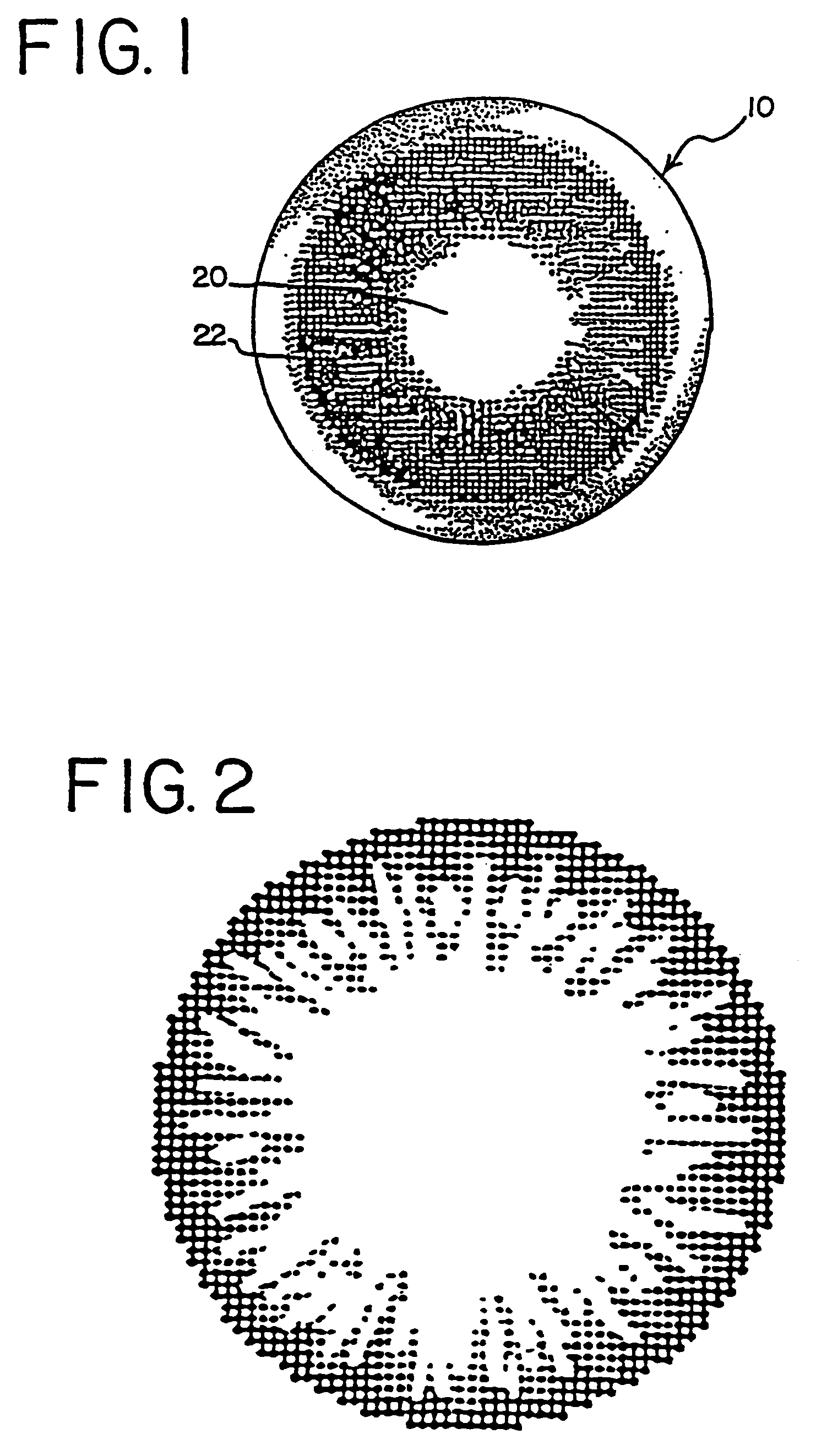Colored contact lens with a more natural appearance
a contact lens and color technology, applied in the field of colored contact lenses, can solve the problems of unnatural lenses, lenses that do not look natural, and contact lenses with opaque colors that impart unnatural appearances, and achieve the effect of natural appearan
- Summary
- Abstract
- Description
- Claims
- Application Information
AI Technical Summary
Benefits of technology
Problems solved by technology
Method used
Image
Examples
Embodiment Construction
[0042]FIG. 1 shows a contact lens 10 in accordance with the present invention. It has a non-opaque pupil section 20 in the center of lens, and an annular iris section 22 surrounding the pupil section. For hydrophilic lenses a peripheral section (not shown) surrounds iris section 22. A colored, opaque, intermittent pattern is located over the iris section 22, as show in FIG. 1. The pattern leaves a substantial portion of the iris section within the interstices of the pattern non-opaque. The non-opaque areas of the iris section 22 appear white in FIG. 1.
[0043]The elements of the pattern are preferably dots, and especially preferred are dots, some of which run together, as shown in FIG. 1. Certain portions of the iris section 22 are less densely covered with dots than other portions.
[0044]The opaque pattern or patterns can be made up of dots having regular or irregular, uniform or non-uniform shapes, for example, round, square, hexagonal, elongated, or other dot shapes. Further, the el...
PUM
 Login to View More
Login to View More Abstract
Description
Claims
Application Information
 Login to View More
Login to View More - R&D
- Intellectual Property
- Life Sciences
- Materials
- Tech Scout
- Unparalleled Data Quality
- Higher Quality Content
- 60% Fewer Hallucinations
Browse by: Latest US Patents, China's latest patents, Technical Efficacy Thesaurus, Application Domain, Technology Topic, Popular Technical Reports.
© 2025 PatSnap. All rights reserved.Legal|Privacy policy|Modern Slavery Act Transparency Statement|Sitemap|About US| Contact US: help@patsnap.com



